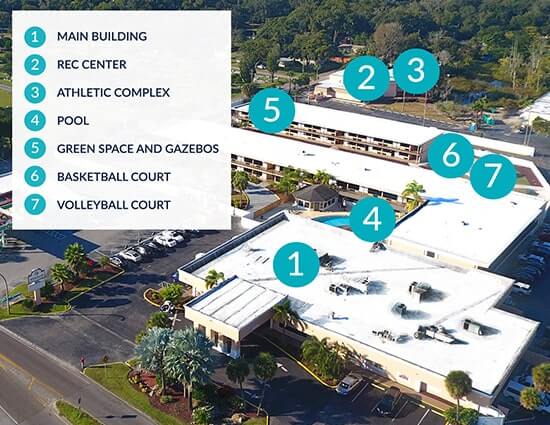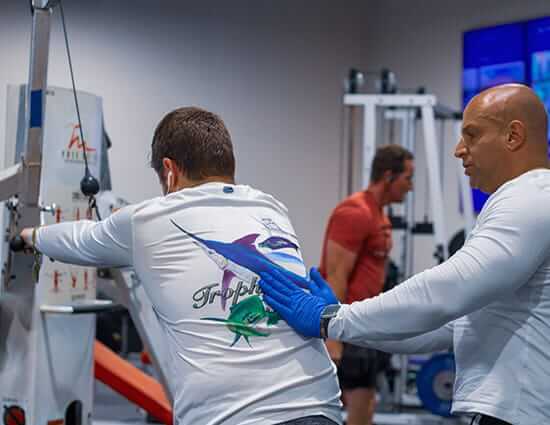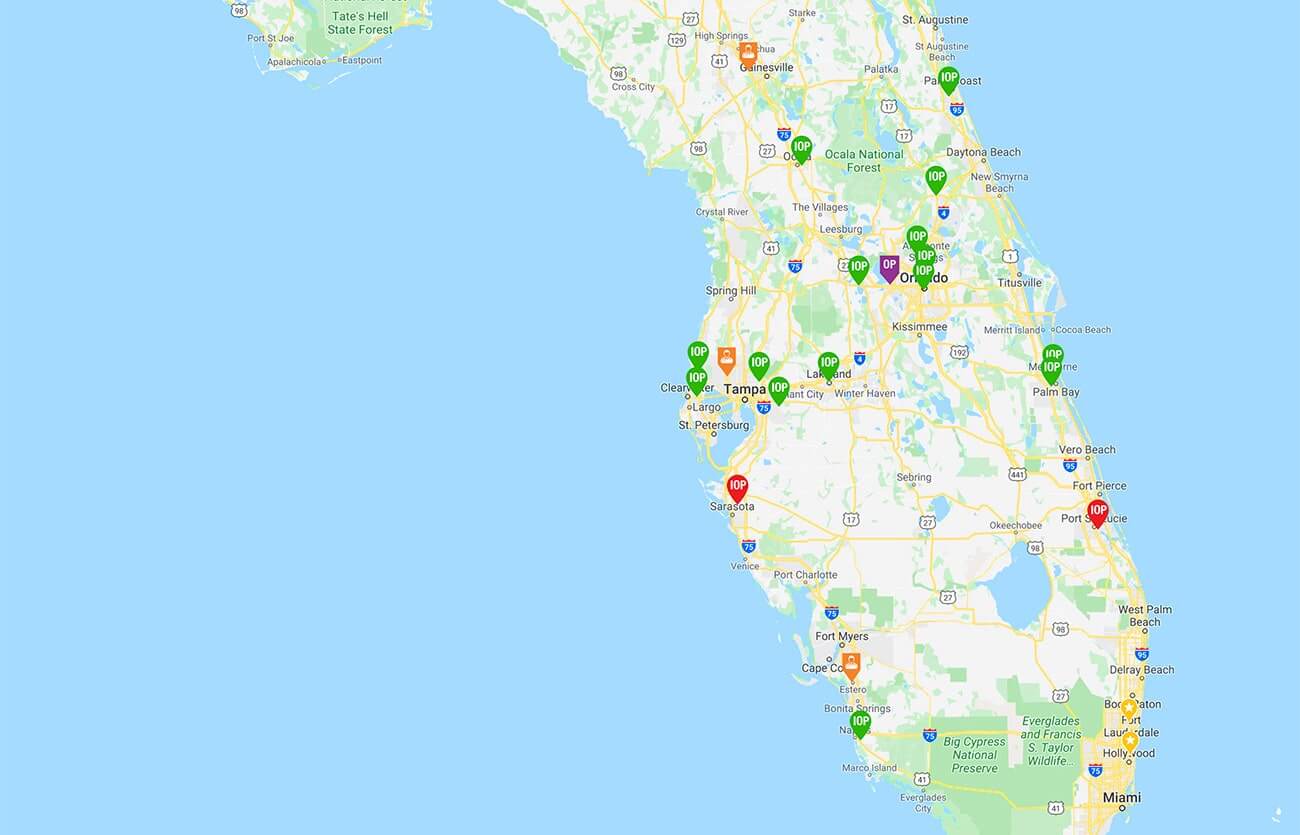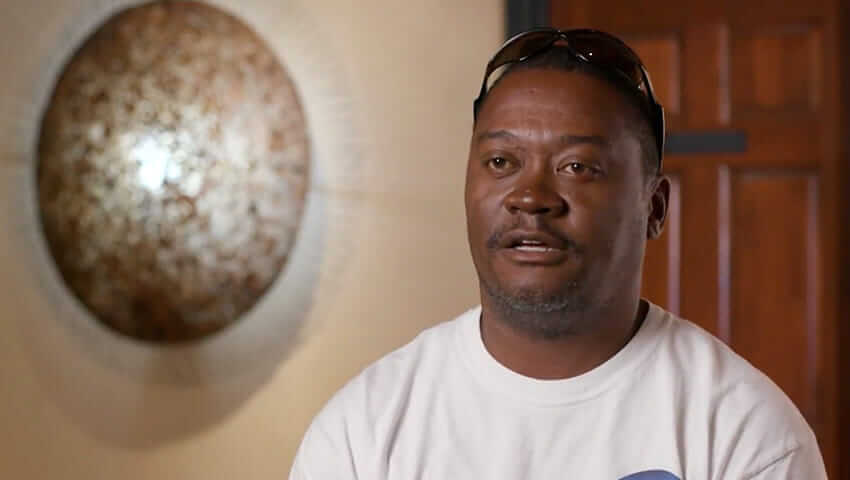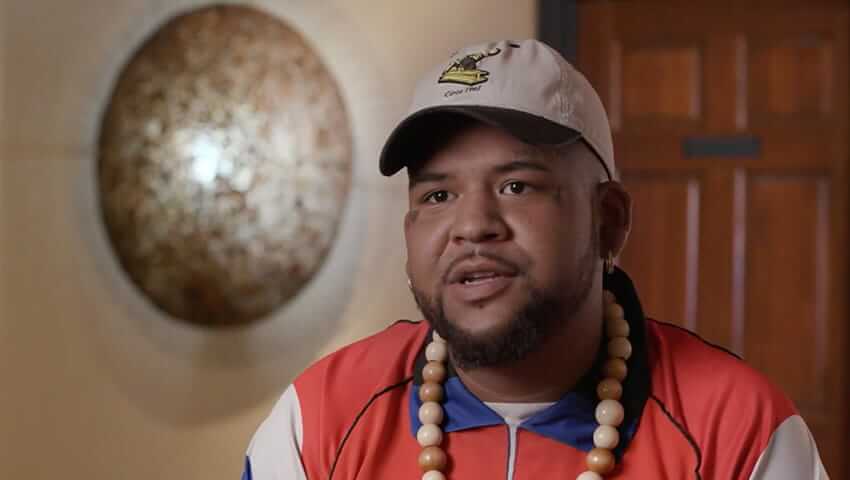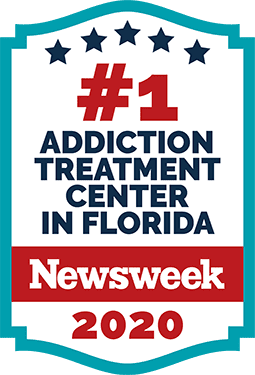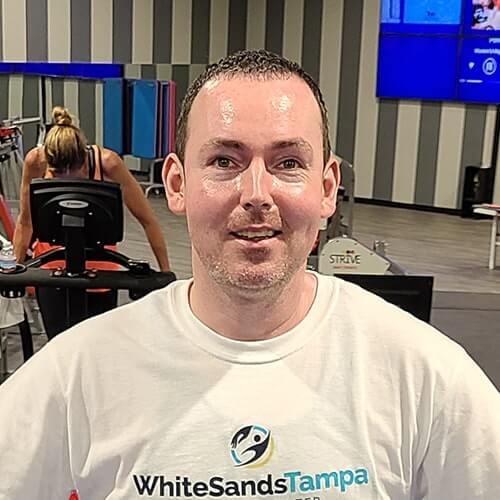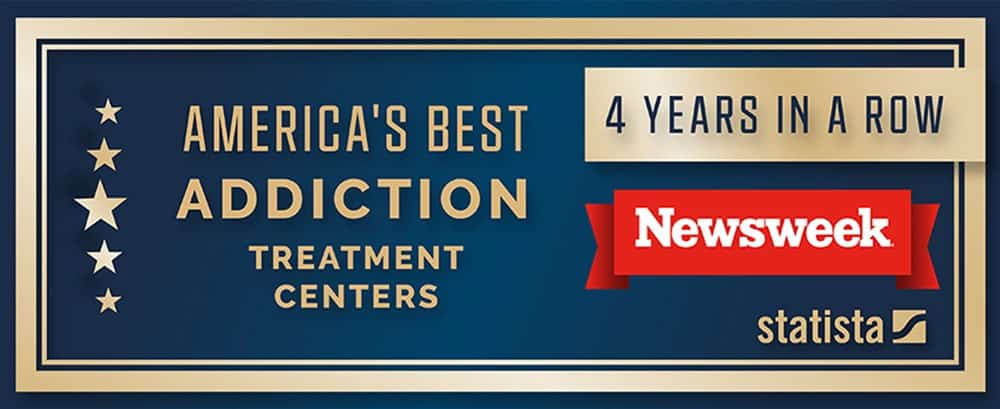Addiction Treatment Specifically Tailored for Military Veterans
Military veterans face a unique set of challenges once they return home from their deployment. Adjusting back to regular day-to-day life can be difficult for some, especially if the individual has witnessed tragedy while deployed. Trauma is something that many vets have to learn to cope with daily when they return home. Trauma can include anything from an injury to being a bystander in someone’s death and even experiencing sexual assault.
Many vets who come back home after deployment do not know how to cope with the trauma they’ve experienced properly. In turn, many vets resort to substance abuse as a coping mechanism to escape what they are feeling. Unfortunately, this puts vets at risk of addiction. Through personalized addiction treatment for military veterans, vets can get the help, care, and guidance they need to better cope with the past so that they can lead a productive and fulfilling life.
Why Choose WhiteSands for
Alcohol & Drug Treatment
WhiteSands Alcohol and Drug Rehab offers tailored drug and alcohol treatment to those who are struggling with substance abuse and addiction. Whether you are a military vet who has turned to drugs or alcohol to cope or have spiraled into the grips of addiction due to prescription drugs, our team of dedicated specialists can help you make a full and lasting recovery.
WhiteSands Alcohol and Drug Rehab offers individualized treatment programs that are crafted on a per-patient basis. We focus on treating patients as a whole by utilizing a whole-patient approach by determining any underlying illnesses that may be the driving force behind the addiction.
At WhiteSands Treatment, no two patients are treated the same as we craft a unique treatment program for every individual who walks through our doors. We do not institutionalize treatment and we never apply a one-size-fits-all approach to recovery as this is not an effective approach to addiction recovery. By treating patients on a personalized basis, their unique struggles can be determined and treated and managed accordingly.
With a comprehensive approach to addiction recovery, we are confident that WhiteSands Alcohol and Drug Rehab can not only help you obtain sobriety but will help you maintain it on a long-term basis. Patients will be provided with aftercare resources and be assigned a primary therapist upon discharge so that they always know where to turn to in times of stress, urge, or temptation. Having the tools readily available for patients when they have exited our residential treatment and outpatient treatment programs can help them make wise and conscious decisions about maintaining their sobriety and staying abstinent from drug and alcohol use.
The most critical time in a patient’s recovery is directly after they have graduated from outpatient treatment and are first re-entering society as a sober individual. These individuals will face a particular set of challenges that will indeed put their sobriety to the test, as there are triggers everywhere. Knowing how to handle these triggers and temptation can be the difference between sustained sobriety and relapse. Knowing relapse prevention tools and applying them in times of desire and impulse can help patients make better decisions, ultimately assisting them in navigating this new, sober life that they are leading.
The disease of addiction requires constant monitoring and management as it can easily creep back into your life if you do not control it. Just as other chronic disorders require ongoing care, the same rule applies to the disease of addiction. The disease of addiction does not discriminate and anyone is at risk of this disease that has imminent outcomes. If you or someone you love is struggling with drug or alcohol abuse, get in touch with the intake team at WhiteSands Alcohol and Drug Rehab today.
Alcohol Detox Centers for Vets
Veterans are particularly vulnerable to the disease of addiction as many of them have not discovered coping mechanisms that will allow them to manage former trauma better. Because of this, vets may turn to alcohol to self-medicate. Post-traumatic stress disorder (PTSD) is a common mental health condition that vets struggle with. When triggered by something that brings back evil thoughts, traumatic mental images, negative memories, and flashbacks, they can become severely anxious, which can become uncontrollable. To lessen the negative thoughts they are experiencing and the side effects of trauma, they cope with these feelings and emotions with alcohol.
At WhiteSands Alcohol Detox for Veterans, we offer medically assisted detox for those struggling with alcohol abuse and alcohol use disorder (AUD). Medical detox is the first step in the overall treatment process and involves safely and gradually weaning the individual off alcohol in a controlled, monitored, and regulated environment. The individual will be administered a tapering medication designed to wean them off slowly so as not to evoke withdrawal symptoms. When the patient is stabilized during the detox procedure, they can better focus on the next steps they are about to take in recovery.
The length of time that the patient will be in detox will depend significantly on the severity of their alcohol addiction and how long they have been abusing it. A more extended period in detox will be required for those who have a severe alcohol addiction, ranging from eight to ten days. For those with more mild alcohol addiction, a period of detox that runs anywhere between five to eight days will be recommended. Once patients have met with an intake specialist and registered nurse, the length of time in detox that is best suited for them will be determined.
Drug Detox Centers for Veterans
Unfortunately, many veterans return home from deployment and resort to drug use as a means to cope with injury, emotional damage, psychological turmoil, and trauma. For those who have become addicted to drugs, whether they are prescription drugs or illicit drugs, treatment is necessary to overcome addiction. The primary step in recovery for drug abuse is drug detox. Like alcohol detox, drug detox for vets involves cautiously weaning the individual off the drug utilizing tapering and weaning medications. The patient will first be administered a larger dose of the detox medication, and this amount will lessen each day throughout the detox period until the patient is entirely free of the substance.
WhiteSands Stories of Recovery
Alcohol Rehab Treatment for Ex-Military (What to Expect)
Military troops who have retired can bear immeasurable stress not only while they are on active duty but when they return home from deployment as well. They protected our country and held great pride in doing so. Unfortunately, many of them return home with PTSD and other mental illnesses that inevitably affect their everyday lives. Alcohol is a substance that is prone to abuse due to its ease of access and legality. Because of these factors, alcohol is one of the most widely abused substances across the nation.
For those who struggle with an underlying mental health disorder, consuming excessive quantities of alcohol is an easy way to suppress negative emotions. Unfortunately, alcohol abuse leads to alcohol addiction and alcoholism, which is a chronic illness. For those experiencing alcoholism, alcohol treatment is essential. When patients first enter treatment for their alcohol abuse, they will undergo an in-depth patient evaluation that will help determine the severity of the addiction and what sort of treatment modality would be best suited for the patient. Each individual and their struggle is unique, which is why WhiteSands curates unique treatment programs based on the specific needs of patients.
During alcohol treatment for ex-military, patients will meet with their primary therapist multiple times per week as they work through their struggles. Therapists will dive deep into the patient’s psyche to gain a thorough understanding of where their alcohol addiction stems from. Through dual diagnosis treatment, which works to uncover the underlying causes of addiction and treat the addiction, patients will have the tools and resources available to make a full and lasting recovery.
Drug Rehab Treatment for Former Military (What to Expect)
WhiteSands Alcohol and Drug offers drug rehabilitation for former military troops who have returned from deployment and have fallen into the grips of addiction. Stress from combat can lead to drug abuse and drug addiction and the only way to successfully recover from addiction is through treatment and therapy. Rehab programs designed for former military personnel help them overcome and manage their disease of addiction and help them return to being the productive members of society that they want to be.
Former military personnel can receive quality drug treatment, therapy, and one-on-one counseling through WhiteSands Treatment. Throughout the patients’ time in treatment, they will learn coping mechanisms and trigger management techniques integral to overall, lasting recovery. Through our MAT (medication-assisted treatment) program, patients may be prescribed certain medications that will assist them in better managing withdrawal symptoms and reducing cravings. Combination therapy, which involves mediation in conjunction with therapy and counseling, is the best way to overcome and manage addiction. The hybrid, whole-patient approach will help patients better manage anxiety, stress, PTSD, and depression. Dealing with common stressors that everyday life presents can help patients learn how to manage triggers while repairing damaged friendships and relationships.
Does The VA Offer Rehab for Addiction?
The United States Veteran Affairs, which is often referred to as VA, offers rehabilitation for addiction and mental health services. For those struggling with addiction and an underlying mental health disorder, treatment is necessary. Having resources available for those struggling with substance abuse and mental health issues ensures these individuals get the help they need to become stabilized, confident, and prepared to enter society knowing how to manage their disorders.
PTSD & Substance Abuse
Several factors play a role in substance abuse once an individual has returned home from deployment. PTSD (Post Traumatic Stress Disorder) is one of the most significant contributors to drug and alcohol abuse among former military members. The side effects of battle can bring on traumatic flashbacks. Some of the symptoms of PTSD include aggression, substance abuse, low self-esteem, flashbacks, memory issues, insomnia, hopelessness, and self-destructive behavior.
These individuals often turn to drugs or alcohol as a coping mechanism to subside these unfavorable emotions and feelings. Other factors such as being separated from loved ones, homelessness, being unemployed, becoming bored, and having trouble restarting their life once they return home contribute to drug and alcohol abuse post-military.
Self-medicating with substances of abuse can lead individuals down a perilous path and can result in full-on addiction. Those who have PTSD may require certain medications as well as therapy and counseling to help manage the symptoms of the disease. Resorting to substances of abuse is not the way to manage the symptoms of PTSD. Instead, quality treatment and personalized therapy can help you make a lasting recovery.
Emotional Trauma & Addiction
Those who are returning home from a deployment can be victims of emotional trauma. As a means of coping with psychological turmoil, many individuals resort to drug and alcohol abuse to manage the side effects they are experiencing. Those who have experienced psychological trauma can suffer from the long-term consequences of these experiences.
Speaking with a professional about your mental state and emotional trauma can help you work through these struggles to manage them better. Doing so will allow you to lead a life that is not controlled by your post-traumatic emotional trauma. Unfortunately, too many individuals who struggle with psychological trauma from battle do not get the help they need and instead turn to drugs and alcohol. It’s important to understand that there are resources and support available to help you manage your emotions, so you don’t need the crutch of drugs and alcohol to cope.
Traumatic Brain Injuries From Battle
Unfortunately, many ex-military return home with substantial brain injuries from battle. Brain neurotrauma and traumatic brain injury (TBI) can have serious and lasting adverse effects such as amnesia, loss of consciousness, ruptured blood vessels resulting in blood within the brain, skull fractures, damaged nerve fibers, and brain laceration, to name a few. Neurodegeneration has long-term debilitating effects that can be chronic in nature.
How WhiteSands’ Veteran Addiction Treatment Program Is Superior
WhiteSands Alcohol and Drug Rehab offers veterans customized addiction treatment and mental health services uniquely designed for the ex-military and those who have served our nation. Our team of accredited and board-certified healthcare specialists and addiction professionals address both underlying and co-occurring disorders present in former military troops through evidence-based treatment. This allows the patient to be treated on a psychological basis, allowing them to connect and address their emotions, manage work/life balance, identify the impacts of their struggles on loved ones, and protect them against the stressors of everyday life.
When the root cause of the addiction is determined and brought to the forefront, the proper treatment modality can ultimately result in better recovery outcomes.
Empowering Veterans With Addiction & Co-Occurring Diagnosis
Some of the common co-occurring mental health disorders that former armed forces are susceptible to are PTSD, anxiety disorder, clinical depression, and traumatic brain injury (TBI). By addressing and determining any co-occurring disorder present in military personnel, a treatment program that helps manage the underlying mental health disorder can be cultivated. If left untreated, mental health disorders can lead to drug and alcohol abuse and addiction, so it is so important to get help as soon as you realize there is a problem.
Full Continuum of Care for
Addiction for Veterans
At WhiteSands Alcohol and Drug Rehab, we offer a full continuum of comprehensive care and treatment options for veterans. When vets are provided with a full continuum of care, it can prevent them from falling through the cracks and can prolong their sobriety to a life-long basis. With wellness programs, high-quality medical care, one-on-one therapy, and holistic means to recovery, patients can be treated as a whole. With an experienced staff dedicated to patient recovery, guests at WhiteSands can have confidence in their recovery journey.
Chronic Pain – Opioid Addiction Amongst Veterans
Opioid Use Disorder (OUD) is common among veterans as many of them live with chronic and debilitating pain daily due to an injury while serving. Because many ex-military do not seek help for their pain or emotional trauma, doctors prescribe them narcotics to help ease the symptoms that they are experiencing. Unfortunately, military troops who seek an opioid prescription from a doctor are simply masking a problem that is a much deeper issue. Prescription drugs are not a form of treatment and merely add insult to injury. Opioids can have adverse effects on those who struggle with PTSD, and the symptoms of this mental illness can be exacerbated with the use of opioids.
Helping soldiers get the treatment they need for their opioid abuse can help prevent the imminent outcome of overdose when continuing on this dangerous path. Adjusting back to everyday civilian life for those who have served our country is no easy task and can open the door to alcohol and drug abuse.
The problem of veterans and opioid abuse is a massive problem throughout the nation. Ridden with anxiety, trauma, injury, and loss, in those coming home from serving in the line of duty, these civilians struggle with mental illness while also battling physical pain. Add in unemployment, feelings of alienation, and little-to-no financial support creates a recipe for disaster for the men and women who have served.
After being prescribed opioids to help manage their pain, they quickly realize the relief they feel. Due to the incredibly addictive nature of opioids, even those who take the medication as instructed develop a dependency on the drug. Due to the euphoric effects of opioids, many individuals will experience withdrawal symptoms if they do not have a steady dose of the drug.
Empowering Veterans to Discuss Addiction & Needing Help
Opening up about your struggles is never easy, but veterans are encouraged to discuss their addiction as this is the only way that guidance, care, and help can be provided. It’s important to understand that you are not alone in this struggle, and there are people out there that have gone through similar things and who were able to ask for help. The importance of opening up and discussing your challenges is the first stepping stone to getting the proper support you need to stabilize.
How to Spot Substance Abuse
Amongst Veterans
Veterans are a particularly vulnerable group when it comes to substance abuse and addiction. Military life is not an easy one, and many vets come home with so much mental and physical pain that they resort to drug and alcohol use to mitigate the side effects of ongoing pain. The prevalence of substance abuse among vets is at record-breaking highs and knowing who is struggling and how to get them help can genuinely save a life.
When a veteran has returned from combat, close family and friends should keep a watchful eye on the individual. If they are showing signs of substance abuse such as becoming secretive, disappearing for days on end, isolating themselves, experiencing weight loss, loss of appetite, no interest in pursuing a career, liquidating funds and assets to support their addiction habit, and are not emotionally available, it could be a telltale sign that they are victims of substance abuse.
Call WhiteSands Now for Military Veteran Addiction Care
If you, a close friend, or a family member are service members or veterans struggling with substance abuse or addiction, call WhiteSands Alcohol and Drug Rehab today. Alcohol and drug misuse can quickly turn into an obsession, so if you are experimenting with substances of abuse, then the trajectory of your actions will result in addiction. The programs offered at WhiteSands Treatment are explicitly designed for former military, and patients will work closely with their counselors to strengthen coping skills.
Since these individuals are more likely to struggle with negative emotional and psychological barriers than the average person, helping them overcome certain risk factors that are associated with their former military service can help ensure they have the tools, guidance, care, therapy, and resources available so they can lead happy, successful, and fulfilled lives.
WhiteSands Alcohol and Drug Rehab can help you make a full recovery from your drug or alcohol addiction. When individuals call (877) 640-7820 and speak to a WhiteSands intake specialist, they will be guided through an initial screening then given instructions on the next steps to begin the admission process. Call now to speak with an intake specialist and begin the process of healing your life today.




















